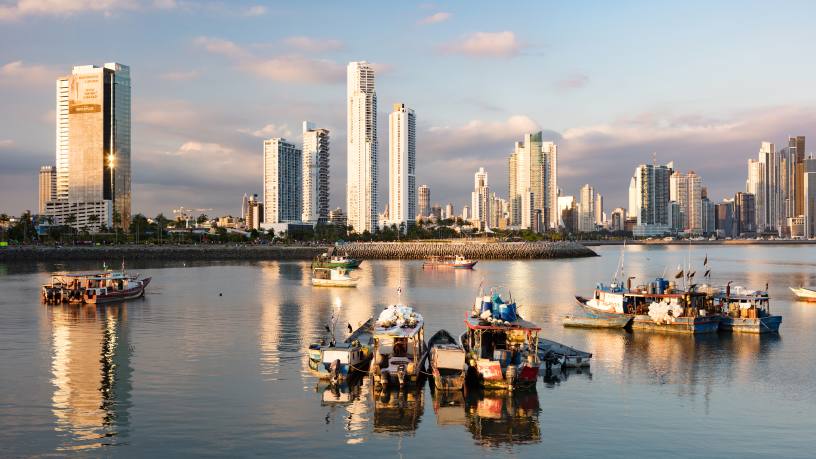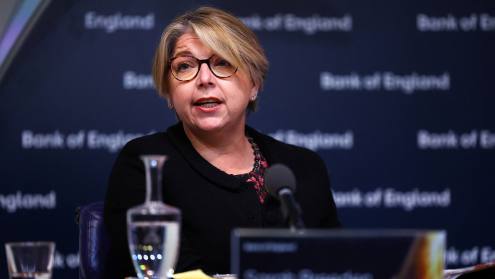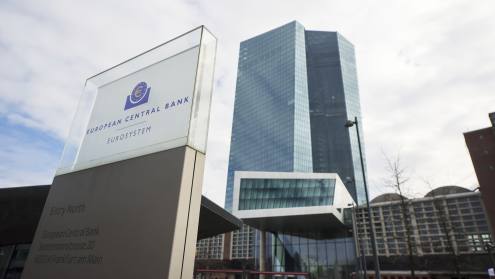The international banking sector has recently undergone a lot of turbulence with the collapse of Credit Suisse in Europe and three small to midsize banks in the US, all in March. These events triggered a sharp decline in global bank stock prices.
However, South American central bank governors do not see that financial volatility spreading to their region. Instead, climate change arose as a larger concern. These topics were discussed in an open session hosted by the Inter-American Development Bank (IDB) earlier this month.
“In the case of Guatemala,” said the country’s central bank president Alvaro González Ricci, “we don't see any short-term latent risks. If this situation were to affect the global financial system, we would have to think along different lines.”
In Bolivia, the impact of the crisis has been fairly limited, given the small quantity of financial assets held abroad. However, according to Roger Edwin Rojas, president of the Bolivian central bank, there are still risks to take into account.
“We understand that the crisis may have a negative impact on the global economy and therefore slow down the pace of our own growth, especially with regard to our exports. Also, the flow of resources we need to support our investment dynamics are likely to go up,” he said.
the uncertainty in the financial sector which we have seen, especially in the US, may have implications
In Colombia as well, the financial system is solid. “This is not a concern,” said Leonardo Villar, governor of the Colombian central bank, Banco de la República. “In principle, the financial systems are responding correctly to the current circumstances with interest rates increasing drastically in an unprecedented way.
“Now, the uncertainty in the financial sector which we have seen, especially in the US, may have implications on the economy.”
Pablo García Silva, deputy governor of the Central Bank of Chile, stressed the importance of having inflation on track. “You need to have a counter-cyclical monetary policy. If we are off target as far as inflation goes, it won't be possible to address an external shock.”
Climate change and monetary policy
Climate change is another vulnerability for the region with record-breaking droughts, melting Andean glaciers and devastating floods. How can monetary policy address these concerns?
Guatemala has been hit by a number of storms and it is looking at insurance mechanisms to protect agriculture, its primary sector of economic activity.
Watch interviews from the IDB
“It is a major challenge,” said Guatemala’s Mr González Ricci. “We are issuing green bonds with preferential rates. We have met with the IDB and with the World Bank to see what we can do to access special funds such as non reimbursable or concessional funds.”
Generally, Chile does not experience tropical hurricanes, but desertification and land degradation are both objects of concern. Last summer, the capital Santiago enforced a water rationing plan as the drought dragged on.
“There’s been a shift to the south of the country when it comes to agriculture and livestock farming. It’s a good thing that our country runs from north to south rather than east to west. But as far as macroeconomic policy is concerned, it is something we need to assess carefully considering our growth prospects,” said Mr García Silva of Chile.
Bolivia has set up insurance policies for the agricultural sector that makes it possible to mitigate some of the adverse effects of climate change.
“As a central bank, what we have done is to use our unconventional monetary policy, as we call it, to generate funds that will make it possible to substitute fossil fuels with other sources of energy,” explained Mr Rojas.
Especially important for Colombia is the protection of forests. “A large part of Colombia is covered by the Amazon. Now, what can the central bank do in that context? Not all that much. This has more to do with government policy and international support policies to deal with these major challenges,” said Mr Villar.
“As a central bank we are involved in a lot of research on this domain. We can look at the impact of the financial sector by doing climate stress testing [as well as] making sure we are carbon neutral,” he added.













